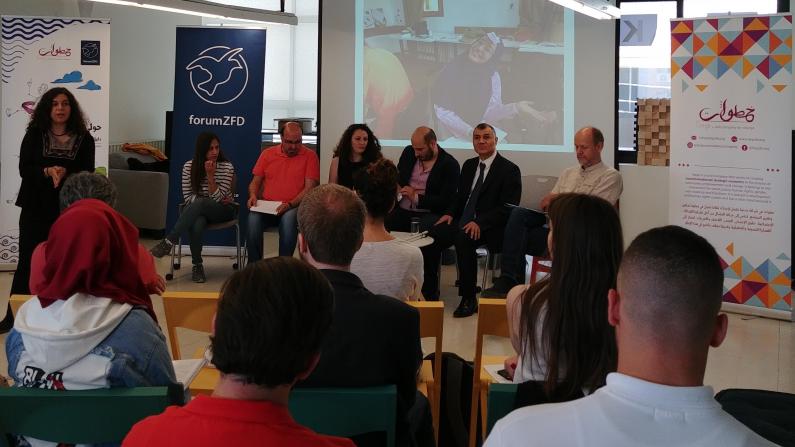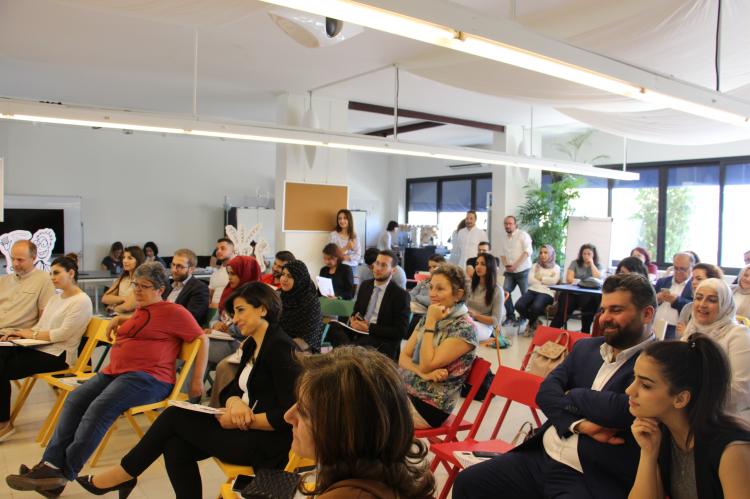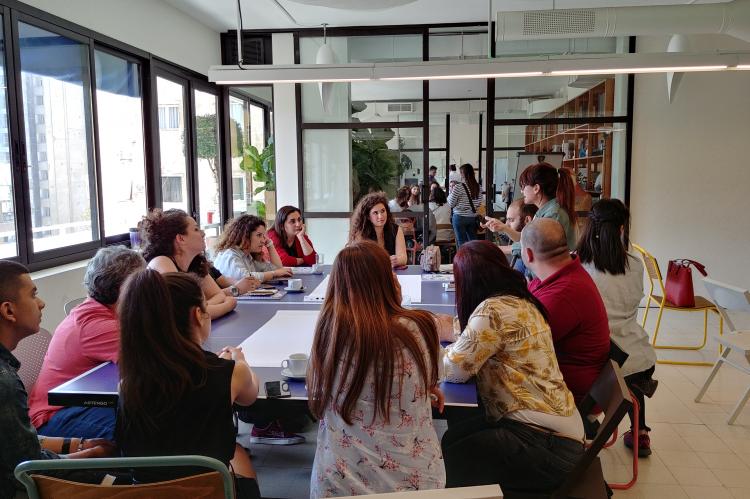
The “Hawli w Hawaleye” toolkit has been developed in partnership with Steps – A Civil Company for Change to provide a tool for animators and educators in summer camps in Lebanon. This project has been implemented as a key component of our Capacity Development Programme. The toolkit was made public during a launching event that was attended by educators and animators from various educational organizations and NGOs in Lebanon.
Developing the toolkit
Starting out in August 2017, the "Hawli w Hawaleye" toolkit was created to address a growing need for practical tools to support animators in providing non-formal education on non-violent conflict transformation. The toolkit’s development involved a thorough process of reviewing a range of existing references and toolkits, drawing in expertise from other curricula, and subsequently adapting them into Lebanon’s context. We then designed and composed different stories and exercises to supplement the toolkit with examples of how to effectively put it into practice. The toolkit was tested in partnership with a diverse range of organisations to receive feedback from animators and children. Finally, the evaluation received was used to amend the toolkit before printing.
Launching the toolkit
The complete toolkit is comprised of: vital tips for animation, sample agendas and guidelines on how to build programmes for summer camps, chapters including over 50 proposed games and songs, as well as a synopsis of the experiences of other NGOs in using the toolkit. The launching event of this toolkit took place on the 3rd of May, 2019 in Fabrika, Ashrafiyeh and brought together over 50 attendees from various organisations. The event began with a few introductory presentations explaining the toolkit, its content, and the process of developing the toolkit. These were followed by working groups for the participants to share experiences on conflict transformation, education, and children’s rights. ForumZFD and Steps have now opened a call for applications to invite interested organisations and schools to learn how to successfully use the toolkit.

